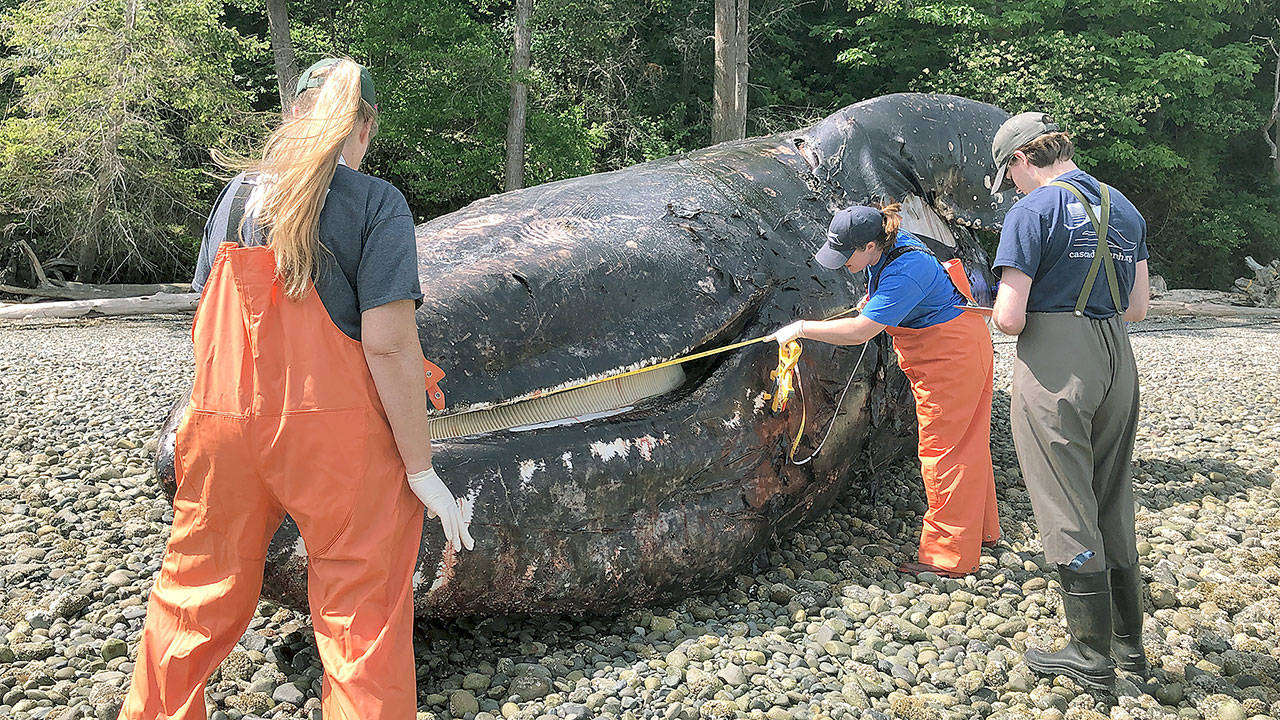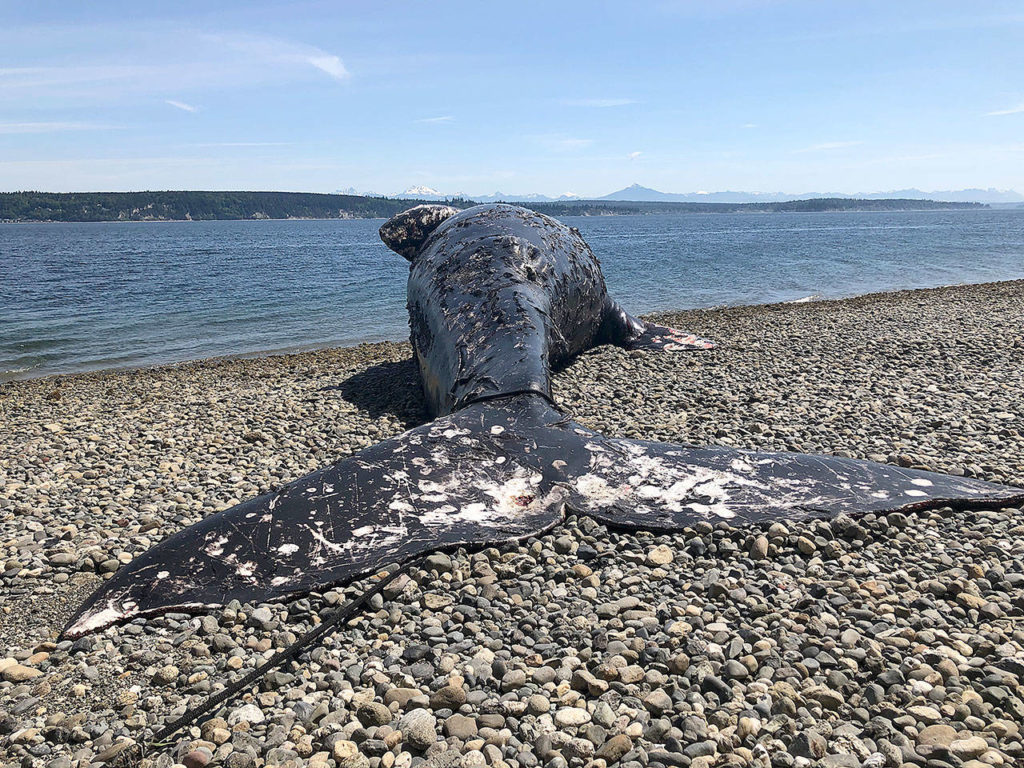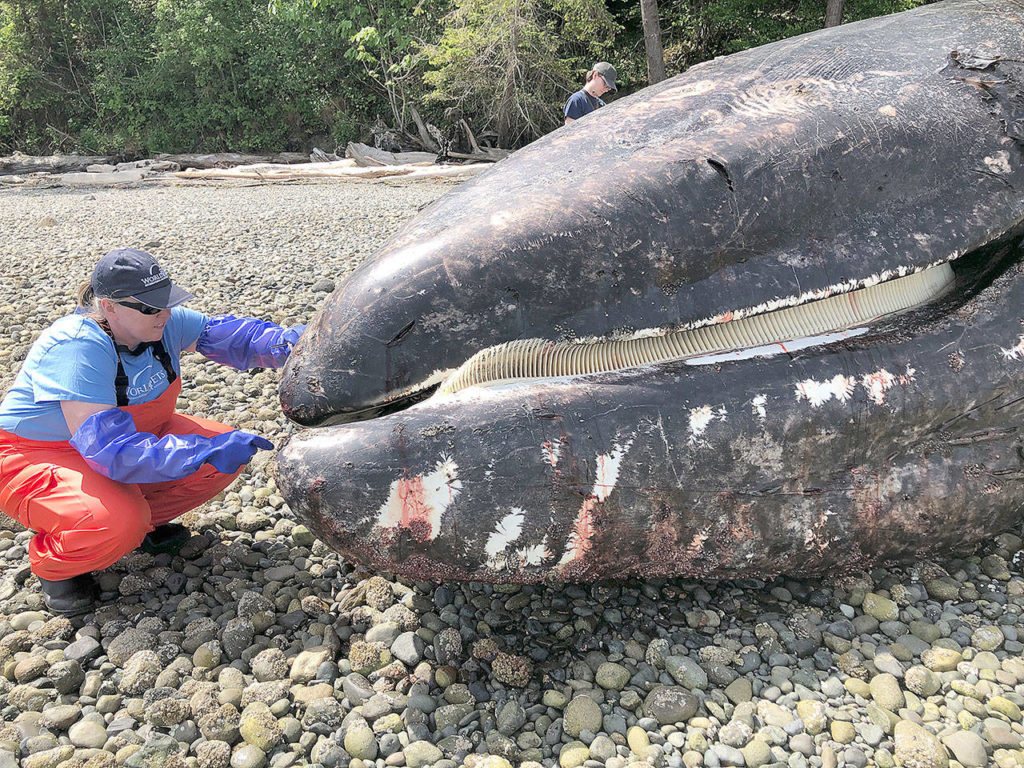CAMANO ISLAND — An examination has revealed more about the dead gray whale that washed ashore near Harborview Park in Everett in early May.
A necropsy confirmed the whale, a female, died of starvation. Biologists found ghost shrimp in one of her stomachs, but she was skinny and undernourished.
The carcass had been towed from Harborview Park to a Department of Natural Resources beach on the southeast side of Camano Island.
That area was chosen because of its proximity to Everett and because the carcass can decompose there without affecting neighbors, said Michael Milstein, a spokesperson for the National Oceanic and Atmospheric Administration.
A state Department of Fish and Wildlife video details how biologists performed the examination.
First, they took photos and measurements of the carcass. This whale was just under 42 feet. Typically, adult gray whales measure between 42 and 49 feet and can weigh 90,000 pounds, according NOAA.
Next, they examined the outside to find scars from a past orca attack.
Sections of the whale’s baleen, the filter-feeder system in its mouth, were sent to a lab for hormone analysis. Scientists aren’t sure of its age yet.
The last step involved opening the whale. Biologists cut through a layer of blubber that can be up to 8 inches thick to take samples of the whale’s uterus, kidneys, intestines and stomach contents.
The carcass will be left on the beach to naturally decompose, Fish and Wildlife communications manager Sam Montgomery said. That can take anywhere from one to two months.
The whale is one of many to recently wash ashore in Washington skinny and undernourished.
So far this year, 28 gray whales have died on Washington beaches, Milstein said. This time last year, there were 10.
But as a whole, Milstein said the gray whale population is doing very well.
“Overall the population is healthy,” he said previously. “But when you have a large population like this, it can be more sensitive to changes in the environment.”
There are about 27,000 gray whales that migrate along the West Coast between Mexico and the Arctic.
“So what we’re seeing is (the dying whales) not getting enough food in the Bering Sea last summer,” Orca Network co-founder Susan Berta said previously.
Port Gardner and Possession Sound commonly are hosts to gray whales and orcas, and occasionally humpbacks.
Julia-Grace Sanders: 425-339-3439; jgsanders@heraldnet.com.
Talk to us
> Give us your news tips.
> Send us a letter to the editor.
> More Herald contact information.



























